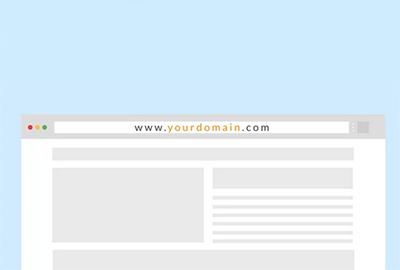
URL
URL is what identifies a specific page or item on a page.

URL is what identifies a specific page or item on a page.

BLOG is a news article which adds a dynamic page on your website.

Images can add value to your site. JPG, PNG, WEBP, GIF and SVG formats.

Links are how Google determines the popularity of your site.

HTML is the mark-up language of a web page.

Title tag is a piece of code where name of your page is placed.

URL is what identifies a specific page or item on a page. It is seen in your browser top bar. If you wanted to add your page to a social media post you would copy the URL.

Blog is a news article which adds a dynamic page on your website. Any page on your site can be a destination for search clicks. A blog can add incredible value to your site. Good SEO is partly creating good additional pages and blogs to your website.

Images can add value to your site. The naming structure of your site and images is a factor in SEO success. Google has a separate index for images. Having an image copied or stolen is not necessarily a bad thing as it is a signal to Google your original image is admired. Web images need to be an appropriate size and quality.
For website owners learning how to manage images is your most important skill. Every modern smart phone has plenty of capability with images.

Links are largely how Google determines the popularity of your site. You can help your site progress in Google by simply getting another site to link to you. Link schemes are against Google's webmaster guidelines.
If you are a Gold Coast Builder and a Gold Coast painter links to your site you will benefit from that link especially if it is on a relevant page.

HTML is the mark-up language of a web page. A link is created with specific code and optional attributes

Title tag is a piece of code where the title or name of your page is placed. That title tag appears at the top of a Google search result. The information in the title tag also appears in your browser tab. The content on the page needs to reinforce the title tag.
If you understand the above 6 factors you can add significant value to your website. Working with an SEO you can make suggestions as to what additional content you would like. A site does not have to be perfect to rank well. If you create content that dates with time you need to update your site regularly or create additional content that does not date.
Where your site ranks depends on how well structured your site is and many other factors like competition. Website owners who know the 6 SEO fundamentals as per above can work to improve their rankings. An SEO is going to work with the above fundamentals. In your day to day business activity you can spot opportunities for links or for BLOG articles. Keywords need to be included in your pages and links but there is no set formula for doing so.
If you place emphasis on a topic it will naturally have relevant headings and text. Never copy text directly from another site, create your own unique information.
A Gold Coast SEO and Web Developer